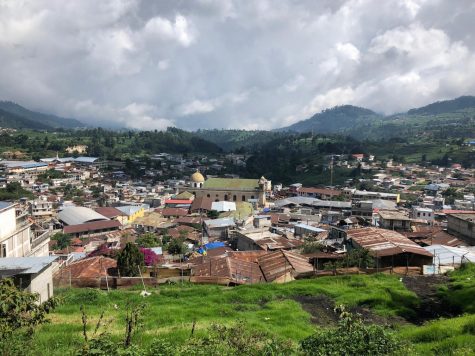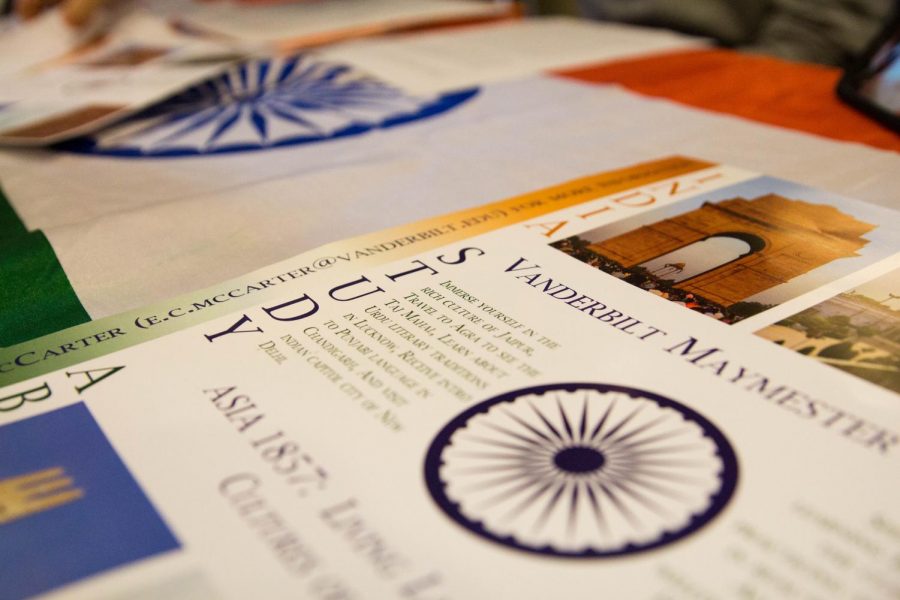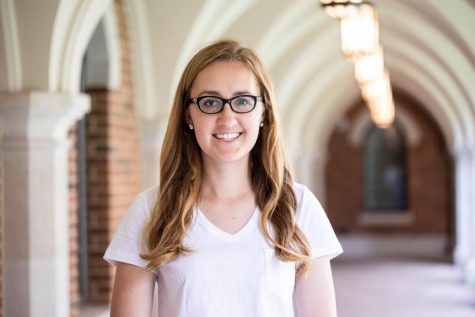Last Monday at 8 a.m., I was crouched over my computer at the Starbucks on 21st Avenue, registering for classes. While the finality of registering for my last semester of classes at Vanderbilt wasn’t particularly sentimental, it did cause me to reflect on the courses that have shaped my time at Vanderbilt.
The first semester of my sophomore year, I began taking K’iche’ Maya. One of almost 30 indigenous Maya languages, K’iche’ is spoken by about one million native speakers in the western highlands of Guatemala.
I chose to try one semester of K’iche’ because my two brothers are adopted from Guatemala. However, learning K’iche’ quickly grew from something I was trying out into an integral part of my Vanderbilt experience.
It was frustrating at first; taking Spanish courses in high school and college was often challenging for me, but learning Spanish is nothing compared to the challenge of learning a non-romance, non-germanic language. When you learn Spanish, there are plenty of cognates, and the sentence structure is somewhat similar to that of English. When you learn K’iche’, there are no cognates, and the structure of the language is completely different.
But I loved taking K’iche’ the first semester of my sophomore year, and three more semesters after that, because every Tuesday and Thursday afternoon I was transported to Guatemala in my mind. With a small class and an understanding professor, I learned K’iche’, but I learned a lot more about the Maya people and their culture.
This past summer, with a Foreign Language and Area Studies grant from the Center for Latin American Studies, I had the incredible opportunity to continue learning K’iche’ and live with a host family in a Guatemalan town that speaks the language.

This was the single most formative experience of my college career. I learned even more about Maya culture and the K’iche’ language. This experience further shaped my views on family, immigration and poverty, and I developed greater humility and patience. I was over a foot taller than everyone that I interacted with. I could talk about those six weeks for hours on end, and this was all only possible through the window of language.
Last week, I was talking on the phone with my sister, who is taking her first semester of Arabic as a sophomore in college. Listening to her frustrations as she studied for an Arabic midterm brought back memories of my first semester of K’iche– feeling dumb because I couldn’t produce present tense verbs faster, comparing myself to my peers and ultimately doubting that it was even worth it if fluency were such a far-off, time-intensive goal.
But I told my sister what I learned from taking K’iche. Yes, you probably won’t ever be fluent. No, it’s not a complete waste of time if you never reach fluency. No, you’re not dumb because you can’t say “She walks” without having to think about it. Yes, making mistakes is okay– it’s actually a crucial part of learning a new language.
The final goal of learning a new language isn’t to master every verb form and euphemism so that one can converse naturally with native speakers. From learning K’iche’, I know what a far-off goal that is. But so much growth came from beginning to learn and from continuing to try even when things got hard and verb forms got more complex. I will never speak K’iche’ fluently, or even close to fluently- but every day and semester, I’ve learned more and grown more. Fluency is not the goal; learning more about Guatemala and the Maya people and widening my perspective is.
Practical skills are an important and economical outcome of obtaining a college degree. But college is also chiefly about bettering yourself as an individual by exposing yourself to diverse perspectives and to other cultures and worldviews. If you don’t take time and take courses to invest in your personal development, you’re missing out on such important growth opportunities.
Learning a second language like Spanish has been so useful and beneficial to me, and I’m thankful for how accessible Spanish courses and resources are. Spanish was even helpful to me in interacting with some of the members of my host family in Guatemala. But nothing compares to the mind-bending feat of attempting to learn a language that developed completely independently of your own.
K’iche’ is just one of 18 languages taught at Vanderbilt, including Arabic, Catalan and Haitian Creole. Maybe you’re signing up for your last semester of classes, or only your second semester of classes. Either way, beginning to learn a new language, even if it’s just for one semester, will allow you a window into another culture.




